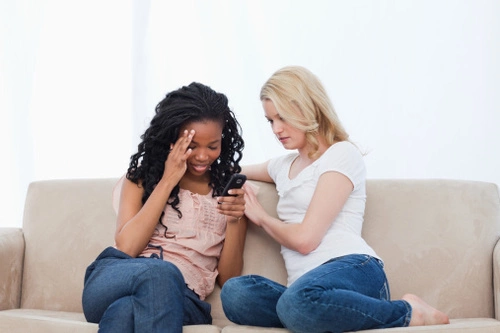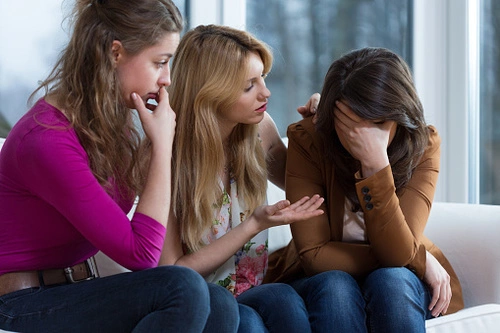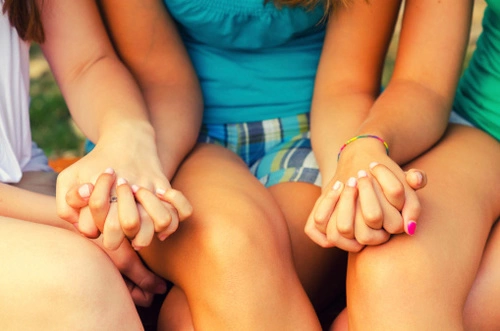1. Select a discrete app icon.

notes
Who are Secondary Survivors?
How a survivor’s support system can fall victim to an abuser’s manipulation
- May 06, 2016

Unfortunately, the reach of domestic abuse can be wider than just the abuser’s partner. While survivors take the brunt of the lasting effects of abuse, individuals close to them, sometimes referred to as the secondary survivors, can suffer as well.
Ruth Spalding, psychotherapist and clinical social worker specializing in treating trauma, explains in more detail how you can tell if you’re a secondary survivor, and how this might play out in your life.
DomesticShelters.org: Who are “secondary survivors?” How do you know if you fit into that category?
Spalding: Secondary survivors are people who are likely to be affected by relational abuse or isolation, so, close friends and relatives of a survivor. Someone who will suffer because the survivor is suffering; someone who regularly talks and socializes with the survivor, which means they may likely be cut out of the survivor's life when the abuser becomes controlling. They may not always be directly abused with threats or verbal abuse, though this can happen. They experience quite a bit of pain because their friend is in pain.
DS.org: What sort of tactics could an abuser use to push away a survivor’s support person?
Spalding: An abuser might act belligerent, even threatening, when at family events. He might become intoxicated or hard to be around in social situations. Friends and family are often unwilling to be around him, and because he never allows his partner to go out alone, he has effectively isolated his partner.
Some secondary survivors find themselves unwittingly manipulated by the abuser. In cases of significant psychological abuse, it's not uncommon for an abuser to intentionally sleep-deprive or gaslight their partner. Severe sleep deprivation and psychological abuse can make the survivor feel or sound paranoid, so her reports of abuse may be less believable. Some friends and family will be convinced the survivor is "crazy" and unwittingly play into this manipulation on the part of an abuser.
DS.org: What sort of effects—mental, emotional or physical–might occur as the result of falling into this secondary survivor role?
Spalding: A lot of secondary survivors experience worry and anxiety. They are understandably scared for their friend or family member who is being abused and often don't know how best to help. They might be sad their friend is going through such pain. They usually feel drained or exhausted after listening to their friend vent about the abusive relationship. Or, if their friend refuses to talk about the abuse, they often feel anxious not knowing what's going on.
Secondary survivors are often angry with their friend for staying in the abusive relationship, but also feel guilty for feeling frustrated. They often have a hard time understanding why their friend stays but don't want to blame their friend since it's not his or her fault. This kind of anger is healthy, because their friend is being unfairly hurt, so of course they are angry. However, allowing that anger to shame the survivor, or using it as a reason to not offer help when you previously would have offered—an abuser counts on that. They are counting on you to be so upset with the situation you just don't bother anymore and won't be open to helping a survivor leave.
DS.org: What should you do if you find yourself feeling like a secondary survivor? Is there a way to support the person enduring abuse without suffering yourself as well?
Spalding: Often, secondary survivors feel so conflicted; they want to help their friend leave their abusive partner but their friend isn't ready yet. And they also don't want to continue to expose themselves to abusive behavior, or it pains them to hear their friend talk about abuse and staying in the relationship. I advocate for someone to take whatever steps they need to take in order to ensure their own personal safety and well-being. I also think it's important to let your friend know you'll be there for them. Leaving an abusive relationship is so dangerous, and often connections have been severed so a survivor has few people to rely on. You can make it clear, "If you need anything let me know. I really mean that." But if you also have to reduce contact to keep your sanity, do it. Most secondary survivors feel drained trying to affect a certain outcome.
Looking for someone to speak with? Enter your location to find phone numbers for domestic violence experts in your area.
Have a question about domestic violence? Type your question below to find answers.








